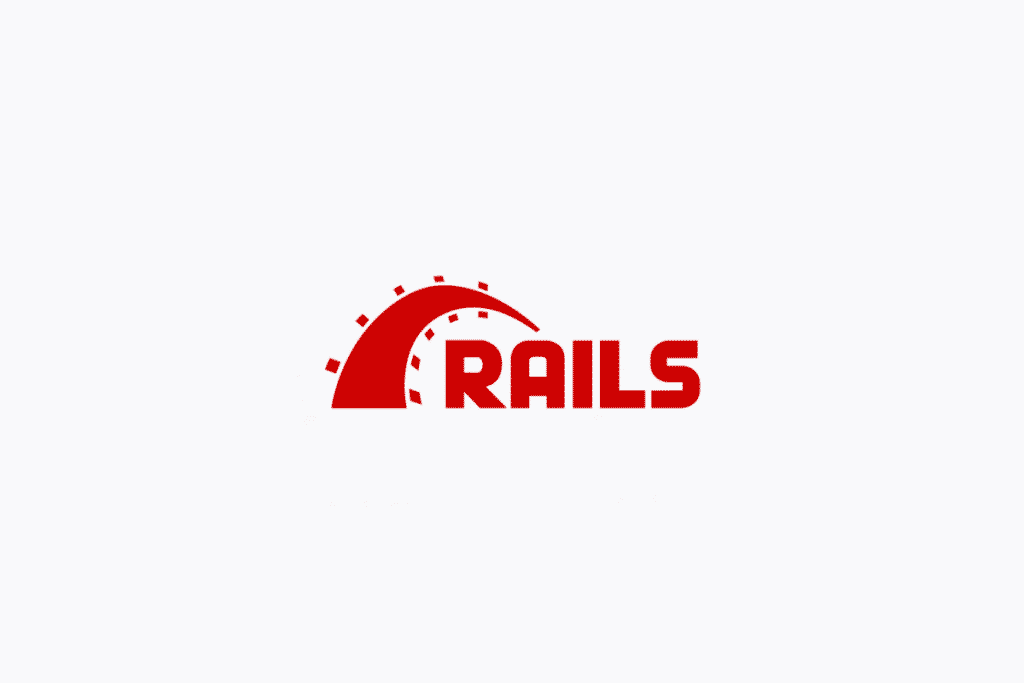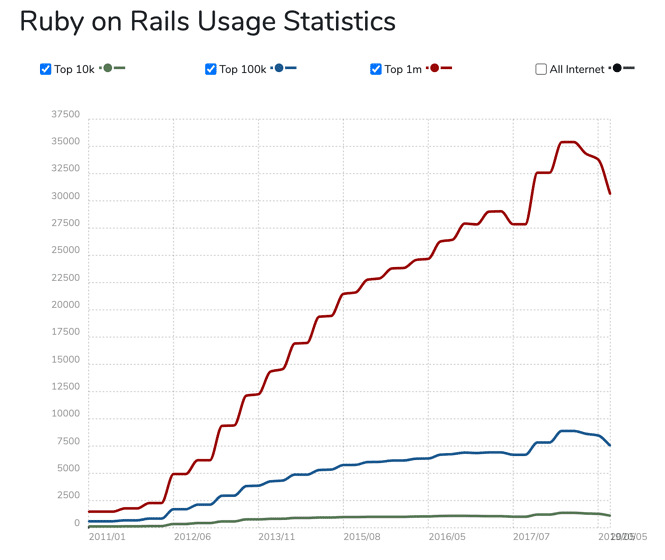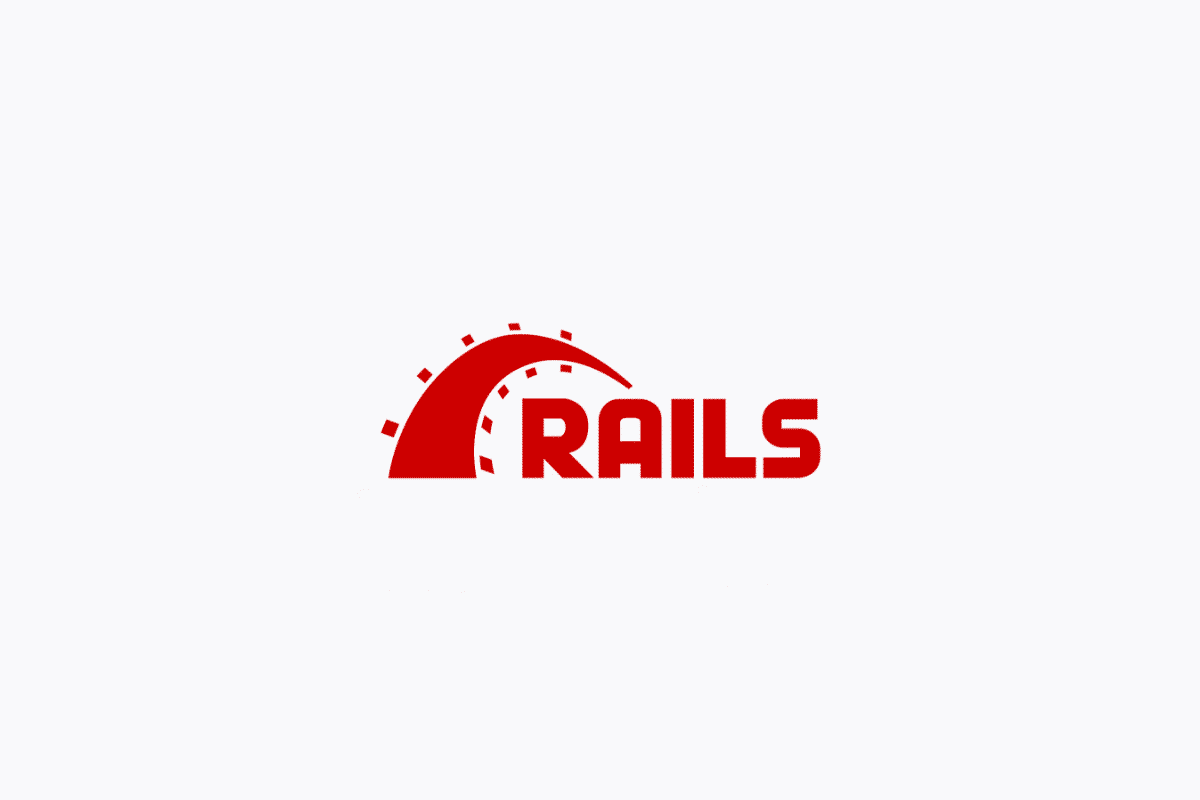What makes Ruby on Rails a strong contender for development in 2022? While some argue that its reign has ended with Node.js taking the reins, it’s crucial to remember that Ruby still boasts significant strengths compared to other frameworks. Especially in eCommerce, RoR shines with its rapid deployment and other noteworthy benefits. This article delves into the reasons why Ruby on Rails continues to be a beloved choice.

Even though Ruby itself might not be experiencing its peak popularity, Ruby on Rails as a framework is flourishing. It stands as a formidable rival to Node.js, an achievement in itself considering Node.js is built upon one of the world’s most popular programming languages.
The remarkable success of Ruby on Rails can likely be attributed to one key factor: it’s simply that effective. As a custom software development company, we’ve observed that once you’ve experienced the efficiency of Ruby on Rails, other frameworks pale in comparison.

Ruby on Rails: An Overview
Ruby on Rails can be summarized as a framework specifically designed for the Ruby programming language. However, this definition might not hold much meaning if you’re unfamiliar with the concept of a framework. So, let’s explore this further.
Frameworks Explained
In essence, a framework is a tool designed to streamline the development process. It establishes the fundamental structure of an application and provides pre-built components that developers can readily use. Let’s use an analogy to clarify this further – it illustrates why Ruby on Rails continues to be so popular.
Think of cooking - seasoning your food from scratch can be challenging. But using pre-made ingredients simplifies and speeds up the cooking process. These ingredients are analogous to a framework in software development.
Both startups and established enterprises frequently turn to Ruby on Rails because it offers a versatile framework suitable for a wide range of applications. Its flexibility makes it a favorite for online game development and intricate business systems.
Strengths of Ruby on Rails
The capabilities of Ruby on Rails development are numerous. Let’s examine some of its most prevalent use cases.
Building Websites: Why Ruby on Rails Remains Popular
The most immediate application that comes to mind is website development – Ruby on Rails excels as a backend framework. It’s commonly employed for creating corporate websites and straightforward business web applications.
- Ruby on Rails is known for its simplicity and flexibility, making it well-suited for smaller projects like blogs and company-owned platforms that necessitate quick updates.
- Ruby, being a scripted language, makes error detection easier, which is a valuable trait in website development.
E-commerce
One of Ruby on Rails’ fortes is its ability to develop marketplaces and e-commerce websites. The inherent simplicity of Ruby’s structure allows developers to maintain clarity and readability even within complex architectures.
One of Ruby’s defining characteristics is its straightforward syntax – the language requires significantly fewer lines of code compared to Java or Node.js
The advantage here is evident – you can expedite the development of MVP development and gain a competitive edge by being the first to enter a new market segment. This speed and efficiency are arguably the framework’s most compelling features, empowering us to assist clients in swiftly capitalizing on opportunities.
Social Networking Platforms
Another area where Ruby on Rails shines is in the development of creating web applications, including social networking sites. Its ease of implementation makes it accessible even for novice developers to independently establish functionalities. The rich ecosystem of Ruby gems enables the creation of sophisticated features while preserving the simplicity of the syntax.
Internal Business Systems: The Enduring Appeal of Ruby on Rails
Ruby on Rails finds frequent use in building CRMs, ERPs, and accounting systems. It efficiently handles substantial amounts of data, and crucially, its maintenance is considerably less demanding compared to other backend tools. It’s true that Ruby had a reputation for being slow – a significant drawback for internal systems – but recent updates have effectively addressed and mitigated this issue.
Why Developers Appreciate Ruby on Rails
A key advantage of Ruby on Rails is its user-friendly syntax, allowing even those new to programming to learn it relatively quickly. Ruby embraces the philosophy of “enjoy programming,” enabling developers to find joy in the coding process.
And we certainly do! Ruby on Rails empowers our team to build complex projects while upholding simplicity. Over the long term, this translates into cost savings for our clients in terms of maintenance and refactoring – an added benefit.
Initiating Your Project
The initial step involves collaborating with a development team equipped to provide guidance on selecting the appropriate technology stack. This begins with a discovery phase, where the team analyzes product requirements, target market, user demographics, and potential risks.
It’s only after a thorough examination of your project that the team can make informed decisions regarding the development approach. While Ruby on Rails is undoubtedly a powerful framework, it’s essential to acknowledge that it might not be the perfect fit for every business (and this comes from experienced Ruby developers!).
To ensure the best approach, a candid assessment of your project and business model is necessary. The development process can commence once the technology stack has been validated by professionals. By choosing a framework and backend language well-suited to your project’s needs, you can effectively mitigate development risks. Remember that web development is a long-term investment, so dedicating sufficient time to these initial stages is crucial.
